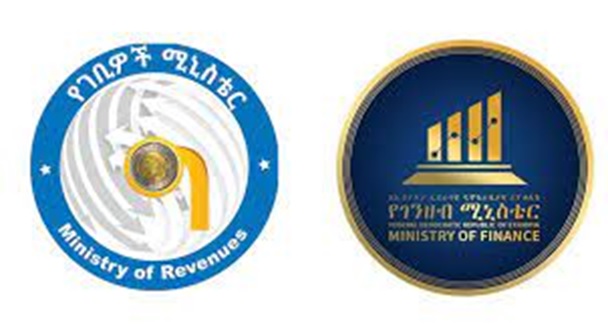
Ethiopia is navigating a moment of profound change, driven by the urgent need to address challenges that have slowed growth for years. One of the boldest steps in this journey is a sweeping economic reform aimed at revitalizing the country’s financial system.
These efforts, launched after the political shift in 2018, are intended to bring stability and lay the groundwork for a more prosperous future.
According to Mamo Mihretu, the Governor of the National Bank of Ethiopia, a defining moment came on July 29, 2024, when Ethiopia made the daring choice to float its currency, the Birr, letting the market determine its value. It was a necessary step to align with global financial norms, but it wasn’t without pain. The impact was immediate. As an import-dependent nation, Ethiopia saw the cost of living surge almost overnight. Prices for imported essentials like food, fuel, and medicine skyrocketed, straining household budgets and putting businesses under pressure. Families struggled to stretch their incomes, and the reality of economic reform hit home in a very personal way.
As to the State Minister of Finance, Eyob Tekalign (PhD), in response, the government took action. On July 8, 2024 the Ethiopian House of Peoples’ Representatives approved a historic budget of 971.2 billion Birr for the 2024/2025 fiscal year. But as the effects of the reform rippled through the economy, the Ministry of Finance had to ask for an additional 582 billion Birr, pushing the budget to 1.5 trillion Birr. This extra funding is aimed at stabilizing the economy and offering much-needed support to low-paid government workers and vulnerable families relying on social safety nets.
To meet the demands of this record-breaking budget, the government is preparing to broaden its tax base. The approved budget includes ambitious revenue targets, with 281 billion Birr expected to come from taxes. The country seeks to collect 1.5 trillion Birr (USD12.5 billion) in the fiscal year to July 7. That compares to 613 billion Birr the Ministry of Finance set in its 2024-25 budget presented in June. However, for many Ethiopians, this will likely mean changes in tax policy and enforcement, another layer of adjustment in a period already marked by significant economic transformation.
With ambition to expand its tax base and enhance revenue collection, Ethiopia’s Proclamation No. 1341/2024, approved in July 2024 after 20 years, introduces a clearer and more equitable Value Added Tax (VAT) framework. The law applies VAT to goods and services while exempting capital goods used in production to encourage investment in machinery and equipment.
Additionally, it includes provisions for tax fairness and digital integration, aiming to boost economic growth and support the private sector.
Ethiopia has faced persistent macroeconomic challenges and a budget deficit, primarily funded through loans and subsidies. “The budget falls short of the country’s needs, as indicated by key macroeconomic indicators,” said Natae Eba, Seasoned Tax Lawyer.
To address these issues, the government has introduced tax reforms, including a three percent social welfare levy on imports, with some exceptions. Previously exempt services such as electricity, water, transportation, and e-commerce are now taxed. This move, pressured by lending countries, aims to increase tax revenue to meet societal demands.
However, he acknowledged that, there are limitations, expressing concern that the creation of new businesses and registration of new TIN numbers must be prioritized to avoid overburdening the already strained businesses. He also noted that higher tax rates on even small services are discouraging businesses, including Foreign Direct Investment (FDI), and affecting business predictability. “As costs rise, uncertainty grows, potentially deterring investors, particularly from China, who had once seen Ethiopia as a promising destination,” he added.
While tax enforcement has improved, businesses that were once overlooked due to weak enforcement are now required to comply with the law. However, Natae pointed out that challenges persist in the tax collection system. He emphasized that a one-size-fits-all approach to audits doesn’t work, as businesses in sectors like manufacturing and retail operate differently. Tax authorities need to recognize these differences and avoid imposing their own limitations on businesses. Additionally, customs regulations should allow importers to declare goods at market prices, without applying international pricing standards, which has led to unnecessary disputes.
The government’s tax revenue is on the rise, with ETB 312 billion collected this quarter, a figure that once represented an entire year’s target. However, experts argue that true revenue growth will depend on the creation of new businesses and the registration of new TIN numbers. They stress that when setting revenue targets, it’s crucial to consider the potential number of transactions and provide clear projections for revenue growth. This approach will help prevent overburdening existing businesses.
Meanwhile, Minister of Finance Ahmed Shide recently underscored the readiness of the government to work attentively to collect revenues through a modern operating system in order to make the implementation of the macroeconomic reform policy effective.
The minister made this remark at a meeting organized by the Ministry of Revenues to discuss with middle level taxpayers regarding compliance to tax laws and macroeconomic reform directions. The government announced recently that it has embarked on full implementation of macroeconomic reform policy.
Minister of Finance, further said that the comprehensive macroeconomic reform program aims to modernize the Ethiopian economy and ensure continuous growth. The macroeconomic reform policy also aims at increasing revenues and cover expenditure by own resources, according to the minister.
Moreover, Ahmed elaborated that the focus of the reform is to improve the ratio of taxes to the gross national product and to enhance the capacity of export trade by increasing productivity. The reform program will help to significantly reduce the country’s debt burden and modernize the financial system, he added.
On the other hand, the Minister pointed out that the role of the private sector in Ethiopia’s stable macro-economy is pivotal. He reiterated that the government will continue to strengthen law enforcement by ensuring that revenue is collected in a timely and accurate manner.
Ahmed urged that all taxpayers must fulfill their responsibilities and collect income in a modern operating system in an appropriate manner in order to realize the objectives of macroeconomic reform policy.
In this regard, he said that, the government will work diligently to collect revenues through a modern operating system in an appropriate manner.
Minister of Revenues Aynalem Nigussie, on her part said that, Ethiopia’s Ministry of Revenues announced that it collected over ETB 451bn in the first half of the 2024/25 fiscal year, according to media reports. This was revealed during a joint performance review meeting with the Ethiopian Customs Commission, which highlighted key achievements for the period.
The Minister of Revenues reported that domestic taxes contributed ETB 247.7bn, while export trade duties and taxes amounted to ETB 203.8bn. This brought the total revenue collection to ETB 451bn, a significant milestone for the country’s fiscal health. The performance exceeded expectations, as the total revenue collected in the first half of the fiscal year was ETB 106.7bn more than the previous year, reflecting a 10% increase. This positive performance highlights Ethiopia’s ongoing efforts to strengthen its economic base.
The Minister expressed confidence that Ethiopia is on the right track in building a reliable and sustainable economic foundation. The government remains focused on reinforcing its fiscal capacity to support future growth and development. The revenues collected has tripled in the past five years citing the 170 billion Birr revenues collected in 2010 Ethiopian fiscal year has now reached over 512 billion Birr.
Despite the revenue performance showing progress, its share in terms of the total national product is low, she said, stressing the need to consult with the taxpayer to improve tax collection.
Experts still claim that the GDP-tax ratio in Ethiopia is negligible as compared to the other sub Saharan African countries. Therefore the exerted efforts to broaden the tax base should continue until the nation demand is met.
BY ABEBE WOLDEGIORGIS
THE ETHIOPIAN HERALD FRIDAY 28 FEBRUARY 2025


